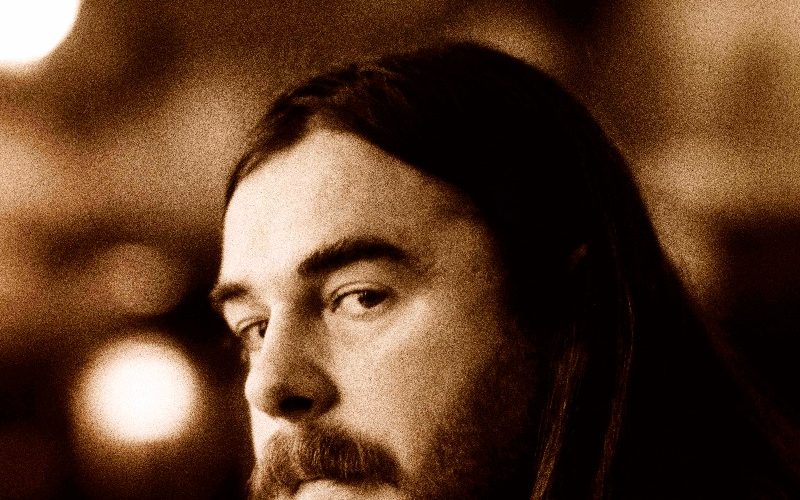



Online Booking Opens Friday 17th May at 10am
Look Over The Wall, See The Sky
Often, to imagine Ireland is to fantasise about rolling hills, giants, saints and snakes. As John Francis Flynn says, it involves “a fair bit of paddywhackery and I hate paddywhackery.” The psyche-celtic album artwork for John’s second album Look Over The Wall, See The Sky, hints at this too though: a crystal goblet of luminous green Crème de Menthe resting upon a mossy ledge, perfectly encapsulating this imagined idea of Ireland in a way that is both funny and poignant. But, if you have to imagine Ireland in the first place, then you’re probably not too familiar with its reality: the towering glass giants of Google and Facebook, the unaffordable luxury hotels lining the Liffey amidst a homelessness epidemic and the highest rents in Europe.
On his new single ‘Mole In The Ground’, a cover of an American anti-establishment folk song recorded by Bascom Lamar Lunsford in 1928, John evokes the rebellious energy he felt in his home of Dublin during a time when it was being “torn to shreds by property developers and vulture funds.” In his rendition, John allows the surrealism of the song to take centre stage, opting to speak rather than sing the words. By taking away its nursery rhyme-like melody, we focus instead on our narrator’s stranger fantasies and desires. His voice, too, sits under the ground of the melody, tapping into the song’s dark, hallucinatory spirit: “I don’t like the railroad man/The railroad man will kill you when he can/ and he’ll drink up your blood like red wine.”
To listen to this album is to witness history through a modern lens in a trance-like state. As expected, Flynn’s contemporary influences are sufficiently esoteric, from ‘The Heart Pumps Kool Aid’ by —__–___ to ‘The invention of the Human’ by Dylan Henner (a concept album about an AI learning to sing). However, he was also inspired by his contemporaries in the traditional music scene in Ireland, many of whom contributed to the album, as well as those outside of it, such as noise-rockers Gilla Band and Rising Damp.
Traditional music of course is not one-size-fits-all. Each song has its own story, history and characters which the singer must serve. “You can’t sing all the songs. Well some people do. But you can tell if someone doesn’t connect with that song…” On the record’s closer, ‘Dirty Old Town’ by Ewan McColl, John takes a song that’s been “done to death”, strips it back, slows it down and unexpectedly adds brass, harking back to the working-class colliers bands of the early 20th Century. In his reimagining of the song, rather than intensifying it he does the opposite, offering a calm and grounding resolution to an otherwise otherworldly album.